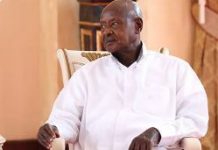PARIS, JUL 8: President Emmanuel Macron will on Monday begin efforts to extract France from political uncertainty after a left-wing coalition defeated the far-right in an election that left no group with an absolute majority.
Mr Macron’s Ensemble bloc came second in the election, ahead of the National Rally (NR) in third, which had been tipped to govern the country for the first time.
The left won 182 seats, Mr Macron’s centrist alliance 168 and Marine Le Pen’s National Rally and allies 143, interior ministry data cited by Le Monde newspaper showed.
Prime Minister Gabriel Attal is due to submit his resignation to Mr Macron on Monday but has made clear he is ready to stay on in a caretaker capacity as political uncertainty looms – and as Paris prepares to host the Olympic Games in three weeks.
Mr Macron called the surprise election three years early after a bruising defeat in the European Parliament elections in June that saw the National Rally win about one in three votes.
“I’m relieved but also worried about what’s coming,” Pierre, a 28-year-old engineer who supports Mr Macron, told The National.
READ MORE
France’s Macron warns ‘Europe could die’ in rallying speech
“I’m not sure what’s going to happen now.”
A lack of majority in the National Assembly may signal political turmoil in a country with no tradition of coalitions.
The far right, which was predicted until recently to possibly gain an absolute majority in the National Assembly, saw its gains limited by tactical withdrawals of left wing and centrist candidates between the first and second rounds of voting.
RN president Jordan Bardella criticised these political manoeuvres, which have been adopted for decades by mainstream political parties to block the rise to power of the party that was founded by Holocaust denier Jean-Marie Le Pen.
Flourish logoA Flourish map
Mr Bardella described them as an “alliance of dishonour”.
Mr Le Pen’s daughter, veteran presidential candidate Marine Le Pen, said: “I have too much experience to be disappointed by a result where we double our number of deputies”.
The RN has campaigned on immigration fears and high costs of living.
Within the left-wing coalition, far left party France Unbowed, led by Jean-Luc Melenchon, gained the most seats, ahead of the socialists and the greens.
With 172 to 192 projected seats, the left is not far ahead of Mr Macron’s group, which is expected to take 150 to 170 seats. The far right came third with an expected 132 to 152 seats.
Marine Le Pen addresses journalists at the party’s headquarters in the hours before her party’s defeat became clear. EPA
Marine Le Pen addresses journalists at the party’s headquarters in the hours before her party’s defeat became clear. EPA
“I’m surprised and relieved that we won,” said Anais, a 22-year-old student in Paris who voted for the left. “I think the left will have to put forward a figure less controversial than Melenchon if they want a Prime Minister.”
Prime Minister Gabriel Attal said he would resign on Monday but would stay in a caretaker position for “as long as duty requires”, hinting at the Paris Summer Olympic Games that are scheduled to start later this month.
Difficult negotiations ahead
“I know that in light of this evening’s results, many French people feel a form of uncertainty about the future since no absolute majority has emerged,” said Mr Attal.
It is up to Mr Macron, who is expected to travel to Washington for a Nato summit this week, to choose a prime minister.
Flourish logoA Flourish map
Difficult negotiations between political parties lie ahead. Mr Melenchon said that he expects the NPF to govern. The President will be under pressure to respect political balances in the new National Assembly, but his office said that he would wait to see what its final structure looks like before making decisions regarding a new prime minister and government.
Mr Macron has previously signalled his interest in building a broad coalition that excludes the RN and France Unbowed, which has been portrayed as anti-Semitic – an accusation it denies.
The left’s promises include a minimum wage of €1,600 ($1,729) a month and reinstating a wealth tax.
France was one of seven countries that were reprimanded last month by the EU Commission for running budget shortfalls above the bloc’s 3 per cent limit, leaving them subject to procedures that require remedial action and can lead to fines for non-compliance.
Pierre, who works in Paris, said centrist voters felt stuck between the far right, which he described as “racist,” and the left, which he feared would tank the economy further.
“Macron may not be perfect but he was trying to support the economy,” he said. The President has become a toxic figure, with some allies choosing to campaign with his photo on their campaign leaflets.
Some advisers have expressed bitterness that the French public appears to have forgotten significant state support including subsidies for their electricity bills after the energy crisis caused by Russia’s invasion of Ukraine in 2022.
Carla Bensamoun, 23-year-old RN supporter outside the Chesnaie du Roy pavilion in the Bois de Vincennes near Paris. July 7. Sunniva Rose / The National
Carla Bensamoun, 23-year-old RN supporter outside the Chesnaie du Roy pavilion in the Bois de Vincennes near Paris. July 7. Sunniva Rose / The National
RN supporters who had gathered in the Bois de Vincennes near Paris expressed their disappointment as they left the rally early.
Carla Bensamoun, 23, said she was “surprised and disappointed.”
“We’re shocked by the alliances between Macron and the NPF,” Ms Bensamoun told The National.
“The RN lost votes as a result and it’s also a loss for the French people who wanted a change.”
Final results are not expected until later on Monday in the highly volatile snap election, which was called just four weeks ago in a huge gamble by Mr Macron.
The RN made a shock victory in last week’s first round but fell short of a majority this time after a week of political deal-making between Mr Macron’s centrist coalition and left-wing parties.
Pope Francis chose the day of the French vote to warn against “ideological temptations and populists”, adding: “Democracy is not in good health in the world today.”
The mood in the country was tense, with 30,000 police deployed to head off trouble and voters anxious about a potential electoral earthquake shifting the French political landscape.
In the village of Rosheim, outside the eastern city of Strasbourg, an “anguished” 72-year-old Antoine Schrameck said he feared France would see “a turning point in the history of the republic”.
And in Tourcoing, near the north-east city of Lille, 66-year-old retiree Laurence Abbad said she feared violence after the results were announced. “There’s so much tension, people are going mad,” she said.
However, Mr Macron, known for his theatrical gestures, appears intent on executing what he calls a “clarification” of French politics, which he hopes will eventually leave three clear camps of far-right, centre and hard left.
“France is on the cusp of a seismic political shift,” said analysts at the European Council on Foreign Relations (ECFR), warning that even if Macron controlled the government after the election he would face “legislative gridlocks”.
This would weaken “France’s voice on the European and international stage”.
Mr Macron has vowed to serve out his term until 2027 when he must step down. That is when Ms Le Pen senses her best chance to win the Elysee presidential palace on the fourth attempt.

















